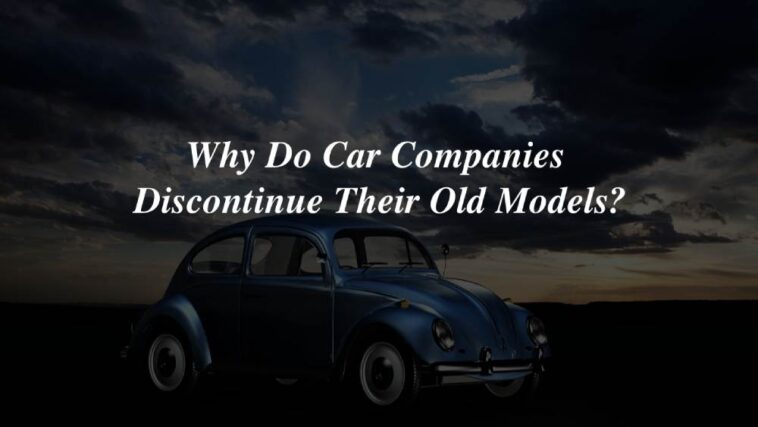In the ever-evolving automotive industry, car companies continually strive to innovate and introduce new models to meet changing consumer demands. One common practice employed by manufacturers is discontinuing existing car models before launching upgraded variants. This article explores the reasons behind this strategy and whether it is mandatory for car companies to discontinue a model before introducing its upgraded version.
Car companies discontinue models primarily to embrace technological advancements and incorporate updated designs. As technology progresses, manufacturers introduce new features, safety systems, and performance enhancements that often require substantial changes in the vehicle’s underlying architecture. These advancements might include the integration of electric powertrains, advanced driver-assistance systems, or aerodynamic improvements. By discontinuing an older model, car companies can start fresh with a clean slate, incorporating the latest innovations seamlessly.
Why Do Car Companies Discontinue Their Old Models?
In a highly competitive market, car manufacturers constantly seek to outperform their rivals. By discontinuing an existing model, companies can introduce a new variant that offers significant improvements over its predecessor. This strategy allows them to capture consumer attention, generate excitement, and gain a competitive edge. Launching an upgraded model allows manufacturers to showcase their commitment to continuous improvement and reinforces their brand image as leaders in innovation.
Discontinuing a car model before launching an upgraded variant can also be driven by production and cost-efficiency considerations. Over time, manufacturing processes and technologies improve, enabling companies to produce vehicles more efficiently. By discontinuing an older model, car manufacturers can update their production lines, optimize manufacturing techniques, and streamline supply chains. These improvements often result in cost savings, which can be reinvested into the development of the upgraded variant.
Previous Model Discontinue Before Launching New One
From a marketing perspective, discontinuing a car model can create a sense of urgency and exclusivity among consumers. Limited availability of a particular model often stimulates demand, especially among enthusiasts and collectors. Moreover, launching an upgraded variant allows manufacturers to leverage marketing campaigns to highlight improvements, generate buzz, and increase brand visibility. The discontinuation strategy can generate media coverage, which further enhances brand recognition and consumer interest.
The automotive industry is heavily influenced by consumer preferences and market trends. As tastes change and new trends emerge, car companies must adapt to remain relevant. Discontinuing a model allows manufacturers to align their offerings with evolving consumer demands. For example, if there is a growing preference for electric vehicles, a company may discontinue a traditional combustion engine model and introduce an upgraded electric variant to meet the market demand.
Is it Mandatory to Discontinue A Car Before Launching a New Model?
While discontinuing a car model before introducing an upgraded version is a common practice, it is not mandatory in all cases. Some manufacturers choose to retain certain models in their lineup while introducing upgrades and improvements incrementally. This approach is often seen when the existing model continues to sell well and holds a strong market position. Manufacturers may opt for a “facelift” or a mid-cycle update to refresh the design, incorporate new features, or enhance performance, rather than complete discontinuation.
Car companies discontinue their models before launching upgraded variants for a multitude of reasons. The evolution of technology and design, the pursuit of a competitive edge, production and cost efficiency, marketing and branding strategies, and the need to align with consumer preferences and market trends all play a role in this decision. While discontinuation is not always mandatory, it allows manufacturers to create excitement, capitalize on advancements, and demonstrate their commitment to innovation. The discontinuation strategy has become a significant part of the automotive industry, shaping the evolution of car models and keeping pace with changing consumer demands.






GIPHY App Key not set. Please check settings